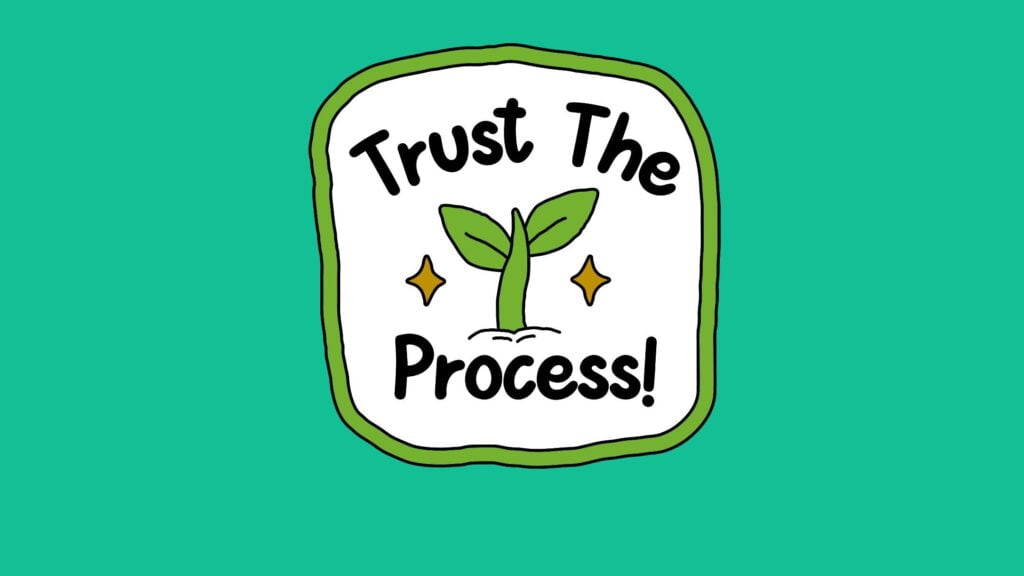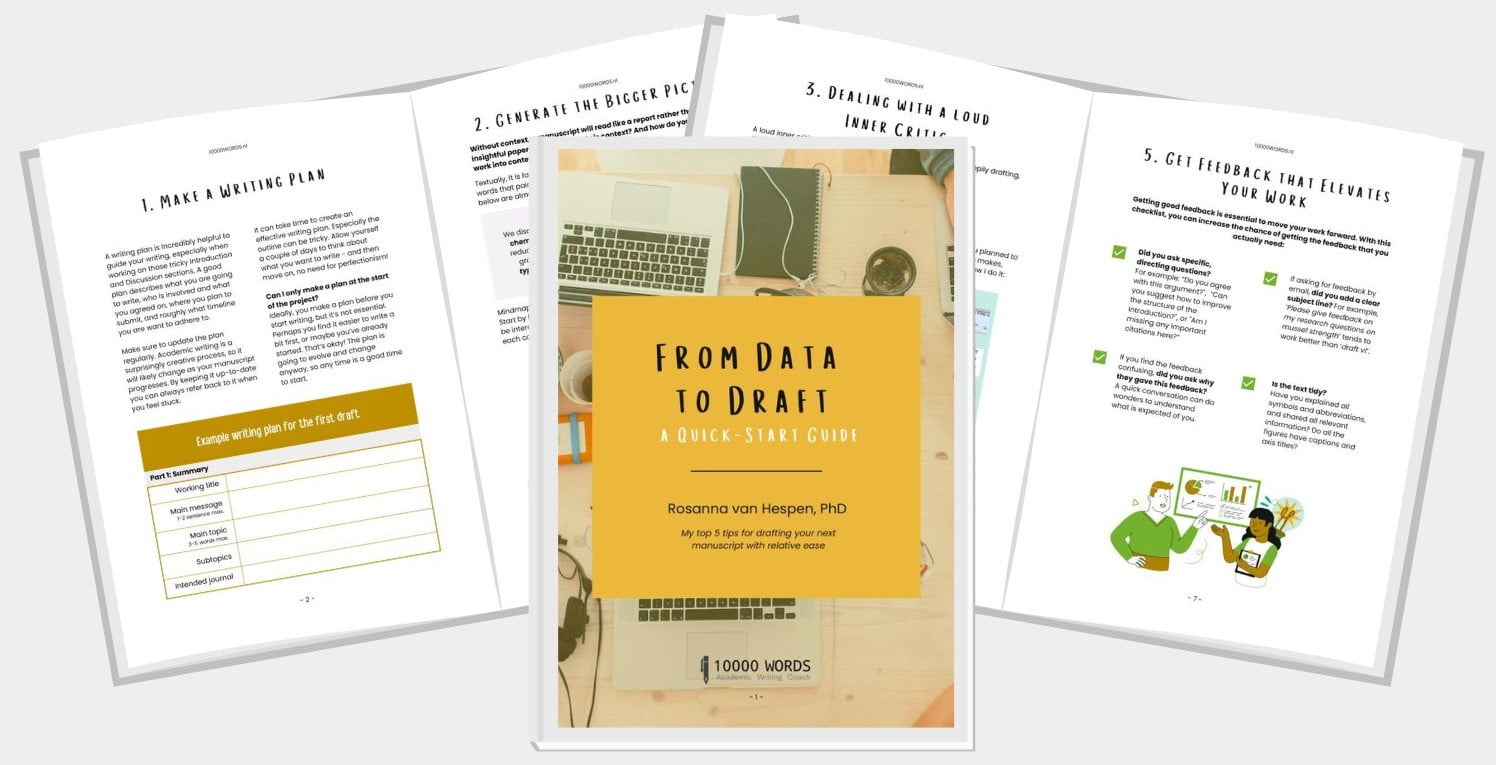Moving from data collection to drafting a research paper can be daunting. Where start, what to write, and how to develop a coherent story without getting bogged down into details? In this post, I share my top 5 tips for writing that essential first draft with relative ease.
1 Think about what you want to write
Scientific writing is a lot of thinking. Thinking about what your data mean beyond the lab, thinking about how to smash the outcomes of five different experiments together into one coherent narrative – without losing scientific integrity, thinking about how your findings relate to what others have discovered about similar topics.
Thinking is hard, so it’s tempting to skip this step and decide to come back to it later. But if you don’t think about what to write, you might find yourself a thousand words deep into a draft that’s veered way off topic, or stuck, staring at blank screen for hours on end.
Making a writing plan for your paper forces you to think about what you actually want to say. It doesn’t have to be a good plan. In fact, it can be an absolutely terrible plan – you can simply change it later. But having a plan is nice, because it tells you what to write.
[videojs_video url=”https://10000words.nl/wp-content/uploads/2023/12/make-a-plan.mp4″ poster=”https://10000words.nl/wp-content/uploads/2023/12/make-a-plan.jpg”]
2 Consider the bigger picture
After spending months or maybe even years collecting your data, the meaning of every small detail of your work becomes obvious to you. However, it’s most likely not obvious to your readers. They may not know what these tiny details mean, or simply don’t care as much as you do.
It’s you’re job as a writer to explain what the small stuff actually implies. So when you write, find a way to step back and illustrate the meaning of your findings in the larger context of science (e.g. based on x we can infer that y actually works differently) or society (given the impact of x, we suggest to change our approach to managing y).
[videojs_video url=”https://10000words.nl/wp-content/uploads/2023/12/context.mp4″ poster=”https://10000words.nl/wp-content/uploads/2023/12/context.jpg”]
3 Don’t be a critic (while you draft)
As a scientist, your inner critic is your sharpest tool and your worst enemy. Meticulous accuracy is essential for the scientific process, but when you’re drafting a loud inner critic does nothing but slow you down.
So, tell that inner critic to take a break. Don’t worry, they can come back later. When that first drafting is finished, there is loads of editing to be do, and inner critics love that shit. At least, mine does.
[videojs_video url=”https://10000words.nl/wp-content/uploads/2023/12/inner-critic.mp4″ poster=”https://10000words.nl/wp-content/uploads/2023/12/critic.jpg”]
4 Write a messy first draft
Don’t polish sentences while you’re still drafting. I know this is tricky, and I’m guilty of this myself, but just like having a loud inner critic, it’s quite inefficient to edit while you draft.
In fact, polishing sentences too early can be a complete waste of time. I have – more often than not – edited sentences that I needed to cut out of a scientific manuscript completely later on. Write a messy first draft. Edit later.
[videojs_video url=”https://10000words.nl/wp-content/uploads/2023/12/shape-narrative-first.mp4″ poster=”https://10000words.nl/wp-content/uploads/2023/12/polish.jpg”]
5 Ask for feedback
Feedback can be scary, frustrating, and plain awful. But it’s also essential to writing a good research paper. Without input from your supervisors, or co-authors, it’s hard to avoid scientific blind spots, especially if you’re writing about something new to you.
What’s more, your supervisors understand the subtleties of scientific writing in your field. For example, they know what language your scientific subcommunity uses, what information should go in the supplements, and how to structure the discussion according to the conventions of your field. So go and get feedback. It helps you develop stronger arguments and will speed up the writing.
[videojs_video url=”https://10000words.nl/wp-content/uploads/2023/12/seek-feedback.mp4″ poster=”https://10000words.nl/wp-content/uploads/2023/12/feedback.jpg”]
You got this!
I would be lying if I said that writing the first draft of a research paper is easy. Trying to make meaning out of data is complex, and trying to weave that into a convincing story even more so. It can (often) feel like you’re barely moving forward.
In my experience, when when you’re on the brink of complete and utter stuckness, that is usually the time when you’re getting the most work done. You’re just not seeing any results yet. Trust me, they will come.


Did you like these tips? And would you like more tips each month?
Sign up for the 10000WORDS newsletter and get the for the “From Data to Draft” guide for free!
Subscribe for as long as you like, you can cancel at any time. See the privacy policy for more info.
